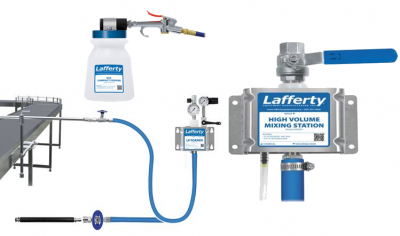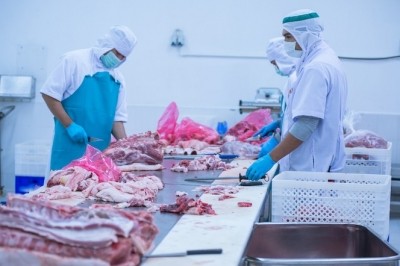Coronavirus food industry guidance outlined as situation eases

The British Standards Institute (BSI), the UK’s National Standards Body, has published new safe working guidelines to help companies manage a safe return to work and reoccupation of their facilities.
The guidelines are intended to become a consensus of good practice and BSI has encouraged businesses and the public to have their say and share their lessons and insights on safe working to help protect public health.
Version 1 of the guidelines is available for immediate use. It provides a framework for business owners, senior leaders, managers and workers to protect people at work from the ongoing risks related to coronavirus.
Review health and safety measures
With the Government recently announcing its COVID-19 roadmap out of lockdown, testing, inspection and certification body Bureau Veritas advised food firms to review health and safety measures.
Earlier this month, the Government updated guidelines to help workplaces become COVID-19 secure, including advice for factories, plants and food outlets offering takeaway and delivery. The guidance includes measures such as increasing the frequency of handwashing and surface cleaning and complying with the 2m social distancing guidelines. Where the distancing guidelines could not be fully followed, companies are urged to consider whether that activity needs to continue for the business to operate. If so, they are encouraged to use Personal Protective Equipment as a secondary control.
At the same time, the Health and Safety Executive (HSE) has also changed its requirements for RIDDOR reporting – The Reporting of Injuries, Diseases and Dangerous Occurrences Regulations 2013 - to include COVID-19. This means it’s now a company’s responsibility to report whether an unintended incident at work or possible exposure to the virus, has led an employee to contract COVID-19.
Drivers visiting premises
The HSE has also published a letter with the Department for Transport, to reassure drivers, and to remind businesses of their obligations to provide suitable toilet and hand washing facilities to drivers visiting their premises. Businesses which make or receive deliveries must ensure that drivers have easy and safe access to toilets and hand washing facilities to support their health and wellbeing, it said.
The Gangmasters Labour Abuse Authority (GLAA) has announced it is suspending its temporary licensing scheme from 1 June. The GLAA created the scheme to meet a predicted urgent demand as the UK moved into lockdown, with some sectors of business effectively shutting down and others needing to draw in greater volumes of workers very quickly.
From June 1, the GLAA said it would accept no further applications for the scheme and incomplete temporary licence applications in process would be cancelled. The small number of current temporary licence holders would receive advice setting out how to proceed in seeking a substantive licence, the GLAA confirmed.
Scotland's egg and poultry suppliers
Scottish farming union NFU Scotland highlighted priorities for food firms as Scotland entered the first phase in easing lockdown restrictions. It said Scotland's egg and poultry suppliers were well-placed, but stressed that haulage for eggs, poultry and packaging should be prioritised. It urged for continued retailer support, considering the collapse in catering market for eggs and poultry meat.
NFU Scotland called for fairer retailer supply chains to support Scottish and UK production longer term and for retailers to reconsider cage-free pledges. Government assistance could be needed should management of the market for class B and small eggs be required in the areas of transport, breaking and storage, it said. The union also called for grant support for investment in egg and poultry farms that improve welfare and efficiency through measures including automation or building improvements.
Manufacturing trade body Make UK has called for the creation of a National Skills Task Force as mass redundancies are expected over the next six months as the Government's furlough scheme is wound down. The group would aim to retain key skills within industry by re-deploying employees who lose their jobs to other companies and enabling them to be re-trained.















